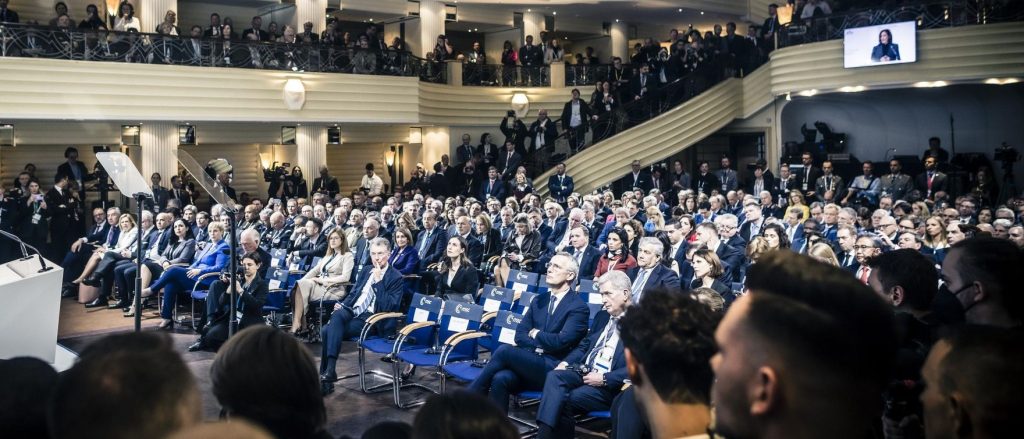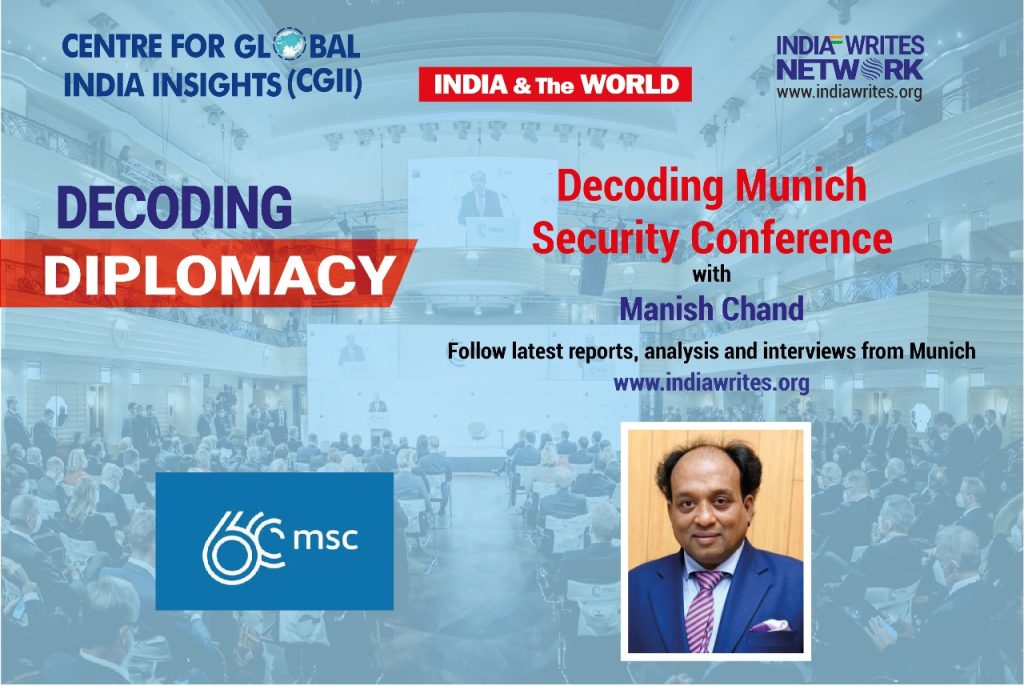
MUNICH: In a sign of shifting geopolitical plates, “migration through war and climate change” has now surpassed the Ukraine war as a top trigger of anxiety in the world, says a report unveiled ahead of the Munich Security Conference, the largest foreign policy and strategy conference in Europe.
The world in 2024 will be characterized by a “downward trend in world politics, marked by an increase in geopolitical tensions and economic uncertainty,” Christoph Heusgen, chairman of the Munich Security Conference (MSC), says in the conference’s 2024 security report, entitled “Lose-Lose.”
In a Munich Security Index survey published ahead of the 2023 conference, Russia’s war on Ukraine topped as the biggest threat to security, particularly in the G7 countries, which includes seven of the world’s most advanced economies. The current survey, however, ranked “migration through war and climate change” as more important security threat than the prospect of Russian aggression even as the Ukraine war continues to fester.

Around 60 heads of state and over 85 other government officials will attend the Munich Security Conference at the Hotel Bayerischer Hof. German Chancellor Olaf Scholz, US Vice-President Kamla Harris and Bangladesh Prime Minister Sheikh Hasina will be among world leaders who will participate in the conference this year.
The survey is based on views of 12,000 people in the G7 countries, as well as Brazil, India, China and South Africa, who were interviewed.
The “Lose-Lose” report vividly brings out the deepening disquiet in the world over growing economic uncertainty. In the G7 countries (Germany, France, the UK, Italy, Japan, Canada and the US), “large segments of the populations[…] believe their countries will be less secure and wealthy in 10 years’ time,” writes the MSC chair.
There is good news in the report for the Global South. An analysis of the survey shows that people in the G7 countries expect China and countries in the Global South to increase their power and influence. China, in particular, will benefit at the expense of the other nations.

“Despite the tremendous achievements in the post-Cold War era, key actors in the West, powerful autocracies, and countries in the so-called Global South have all become dissatisfied with the status quo — and their own share of the proverbial pie.”
The MSC survey paints a gloomy picture of world politics in which nations define success as relative to others rather than the common global good.
The world has entered a new era marked by zero-sum thinking in which countries seek relative advantage through protectionism, self-interest and rejection of mutually beneficial cooperation, says the report.
The report highlights the larger structural shift in the international arena from global cooperation towards transactional thinking, which accounts for multiple crises and conflicts besetting the world.
(Manish Chand, Founder-Editor of India Writes Network and Director, Centre for Global India Insights is in Munich to observe, analyse and interpret the Munich Security Conference.)
Author Profile

- Manish Chand is Founder and Editor-in-Chief of India Writes Network (www.indiawrites.org) and India and World, a pioneering magazine focused on international affairs. He is CEO, Centre for Global India Insights, an India-based think tank focused on global affairs.
Latest entries
 India and the WorldFebruary 27, 2026Modi visit: India-Israel partnership enters a new era
India and the WorldFebruary 27, 2026Modi visit: India-Israel partnership enters a new era India and the WorldFebruary 24, 2026Unravelling Modi’s Israel journey: What to expect
India and the WorldFebruary 24, 2026Unravelling Modi’s Israel journey: What to expect India and the WorldFebruary 17, 2026South-by-South: Focus on people-centric solutions at India AI summit
India and the WorldFebruary 17, 2026South-by-South: Focus on people-centric solutions at India AI summit India and the WorldFebruary 7, 2026Modi hails interim India-US trade deal, Goyal says no concessions made on agriculture
India and the WorldFebruary 7, 2026Modi hails interim India-US trade deal, Goyal says no concessions made on agriculture







